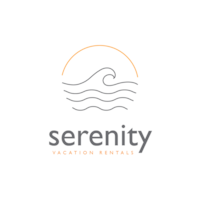Thoughts from a lawyer -Part 2
Thoughts from a lawyer – Part 2
Last week’s blog outlined the first 5 thoughts that Real Estate Lawyer Mark Weisleder, Senior Partner at Realestatelawyeers.ca outlined in the podcast that is up on our YouTube Channel. This week we cover the final areas that everyone considering a cottage purchase should be aware of.
If you haven’t read Part 1, we suggest you go back and read that so that you have the full scope of ideas/areas you should be aware of in purchasing your cottage. Buying a cottage is different than a city home. It is so important that you understand the local area you are buying in and get familiar with the local building dept. This will assist you after the purchase and ensure that you are not surprised with bylaws and what you can and cannot do to your cottage in the area you purchased, and what is allowed on your lake. Here are the last 4 areas that Mark indicates are important for you as a potential buyer to understand when purchasing a property in Cottage Country.
- Shore Road allowance: The first 66 ft from the shore s owned by municipality. It means that your property may not be a private as you thought. On many lakes the Shore Road Allowance can purchased from the township. Often several neighbours will go together with a survey etc. and purchase it all. Older cottages have been known to be built on the shore road allowance which means the cottage could be on land you do not own. So, it is so important for a survey to be done. If you do not own your Shore Road Allowance, it means that the public can go on your land at the water.
- Docks and Boathouses: The lakes in Ontario are all owned by the government. This means if you want to build a boathouse or a dock you may need a permit from the town/municipality and the province. Each town/municipality has their own rules and bylaws around what can and cannot be built as far as boathouses and docks. Some no longer allow boathouses as they want to preserve the shoreline and how it looks. You may also be required to have a water/ecological study done before building to make sure that building will not impact the fish and the natural environment. The local conservation authority will advise if they need to be contacted prior to considering a build. Finally, there may be an annual fee for the dock/boathouse?
- Woodburning stoves: The biggest issue with the wood burning stoves is the fire hazard. Insurance companies require a specific inspection to be completed to be able to insure them. The inspection is called a WETT inspection (Wood Energy Technology Transfer). The inspector who completed this must have their certification for WETT to be able to certify that the stove is safe to use.
- Survey: A survey is helpful to have. You may run across questions such as what happens if lake recedes? Do you own the land if the water recedes? Yes – but if the shore road allowance is owned by the municipality, then it would be part of the shore road allowance. One last point is please make sure you get title insurance.
As always, we look forward to hearing from you!
Happy Cottaging!
